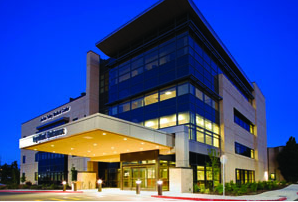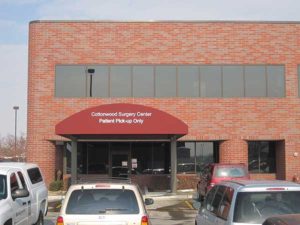Surgery
Scheduling
There are several important steps in scheduling surgery. The following information should clarify what often seems like a confusing and complicated process. Please review this information and let us know if you need help understanding how we will schedule your surgery. We have found many of the frustrations involving surgery scheduling are easily avoided by reading through the following information.
Once you have elected to have surgery, we will initiate an authorization process with your health insurance. We will provide them with the procedure codes (CPT) and inquire about your benefits. The time for authorization to be received varies from a few hours to several weeks, depending on your insurance. Once authorization has been received by our office, we will contact you to schedule a surgery date. We do not schedule any surgery until benefits and authorization have been obtained from your insurance. Without this authorization, you would be responsible for the entire surgery costs.
Our surgery schedule is established several weeks in advance, and as a result we need 2-4 weeks advance notice from you to schedule surgery. Some complex cases may take slightly longer to schedule due to the length of time needed in the operating room.
Dr. Williams performs surgery on Thursdays at one of several surgery centers or hospitals. We will provide you with available options for when and where your surgery can take place. The date of your surgery can be affected by factors such as: the specific surgery center, other surgeries we have scheduled that day, and other health issues that need to be managed prior to your surgery.
Insurance
The out-of-pocket costs for your surgery (deductibles, co-insurance, co-pays, etc.) are determined by your health insurance company. They can best help you understand the costs for which you are responsible. Keep in mind that your health insurance is a contract between YOU and YOUR INSURANCE COMPANY. We do not establish the amount of your co-pay or deductible: your insurance sets these amounts independent of our office.
Before Surgery
A pre-operative history and physical examination is required before you undergo anesthesia or surgery. This is often separate from your regular office visits. This generally takes place 1-2 weeks prior to your surgery. At this visit, Dr. Williams will review your medical history, perform a physical examination, and the surgery will be discussed in detail. In addition, you will be required to sign an informed consent for the surgery.
The surgical center or hospital will typically contact you during the week prior to surgery. They will collect health and financial information from you related to the surgery. It is important to fully disclose all information that is requested. Withholding information can lead to unexpected costs and risks to your health. In addition, they will contact you the day before surgery to provide you with the time to arrive at the surgery center or hospital.
Please DO NOT arrange for time off work until the surgery date has been scheduled. FMLA and disability forms are sometimes necessary to assist in time off work. We are happy to complete these forms for you. However, we require you to be present at the time these are completed to ensure accuracy. These can be brought to your pre-operative or first post-operative appointment.
Some medications need to be discontinued prior to surgery while others are important to continue. Dr. Williams can discuss your medications with you and specific instructions about their use before and after surgery. As a rule, aspirin needs to be discontinued ten days before surgery. Some exceptions are made for low-dose aspirin (baby aspirin, 81 mg). Please discuss this with our staff or Dr. Williams at your pre-operative appointment. Other anti-inflammatory medications such as ibuprofen, Advil, Motrin, Aleve, naproxen, and naprosyn need to be discontinued at least forty-eight hours before surgery. For those medications that will be continued through surgery, they can be taken with a small sip of water on the morning of surgery.
Day of Surgery
Most of Dr. Williams’ surgeries occur in the mornings, but some occur in the afternoon. Please arrive at the surgery center or hospital 60 minutes prior to your scheduled surgery time. You will need to arrange for someone to drive you home – often a family member or friend. You may not drive yourself home after anesthesia. And no, ride-sharing services such as Uber or Lyft do not qualify as a valid ride home. Each surgery center or hospital provides a waiting area for family or friends.
We recommend wearing loose fitting clothes that are easy to remove and re-dress. Remove all piercings and jewelry. Do not wear contact lenses, but you may bring eyeglasses. These will be removed for the surgery. You may bring dentures, but they too must be removed before surgery.
After Surgery
Recovery: The recovery period for foot and ankle surgery varies depending on the type of procedures performed. Some procedures have quick and simple recoveries while others require extensive healing time without the ability to walk on the foot. Dr. Williams can discuss your specific case with you and our office will assist in making the necessary arrangements for crutches, knee scooters, wheelchairs, and handicap placards.
Casts, Splints, Cast Boots, and Surgical Shoes: Our office or the surgical center will provide you with the necessary device to use after surgery. These must be worn as directed by our office and Dr. Williams. Failure to follow these instructions can lead to poor outcomes from surgery.
Crutches, Knee Scooters, Wheelchairs, and Canes: The surgery center will provide you with crutches if needed. Knee scooters are a far more convenient and stable way to remain off a foot. These are available at home health agencies such as Alpine Home Medical or IHC Home Medical. In addition, there is a scooter store very near our office. Their selection of knee scooters is much more extensive and we’ve found they are more stable.
Bandages: A surgical bandage is applied to your foot and/or ankle at the time of surgery. This bandage will be changed in our office at your first post operative visit. It is important to keep this bandage clean, dry, and intact until instructed to change. Removing your bandage before instructed to can lead to poor healing incisions and infection. Consequently, DO NOT REMOVE it until instructed to do so. If the bandage comes loose or wet, contact our office for instructions. Keeping a dressing and bandage dry is often the most inconvenient part of the surgery process. We sell a re-usable bandage protector at our office. These devices keep the dressings dry during showers. Please contact us for one of these devices if you desire one.
Pain: We want you to be as comfortable as possible after surgery. Establishing reasonable exceptions for your pain is important. Surgery is not a pain-free endeavor. Pain medication will be prescribed after surgery. The purpose of pain medication is to reduce pain and not completely remove all of your pain – that requires anesthesia. Keep in mind that while pain medication can be effective in reducing pain, it also comes with potential risks such as nausea, vomiting, constipation, headache, sleepiness, decreased breathing rate, tolerance, and addiction. As soon as you feel comfortable, begin weaning yourself from the pain medication. Elevation, ice, and other over-the-counter pain relievers can be very effective.
We strongly recommend that all surgery patients review our Narcotic Policy.
Exercise: When instructed to, begin knee and ankle exercises after surgery. Bend your knee and ankle back and forth five minutes out of every hour that you are awake. If you have a splint or cast boot that prevents you from moving your ankle, then focus on moving the knee.
Contact: Contact us if you have any complications, concerns, or questions after surgery.
Locations
Dr. Williams is on staff at four hospitals and one surgery center. Where your surgery will take place is determined by several factors including your insurance benefits, the specific surgical procedure(s), your health status, and the date of the surgery. Our office will obtain insurance benefits and review your options with you before scheduling surgery.



5450 S. Green Street, Suite B
Murray, UT 84123
Phone: (801) 262-0098
Fax: (801) 262-5063







